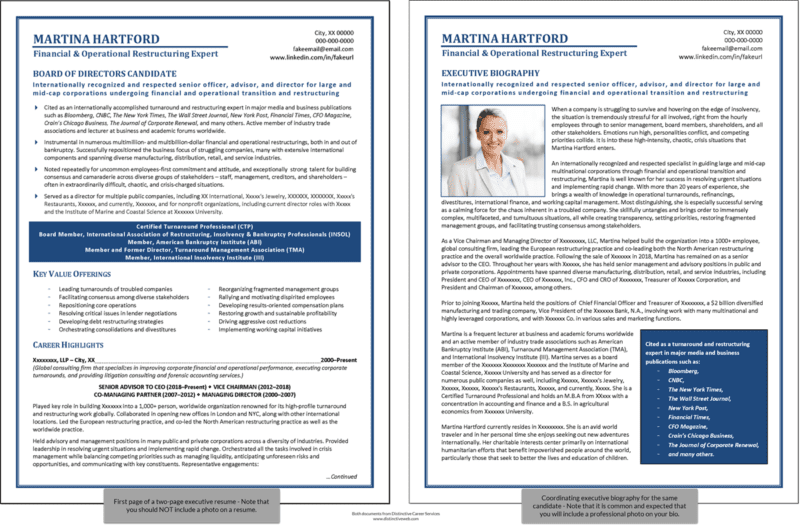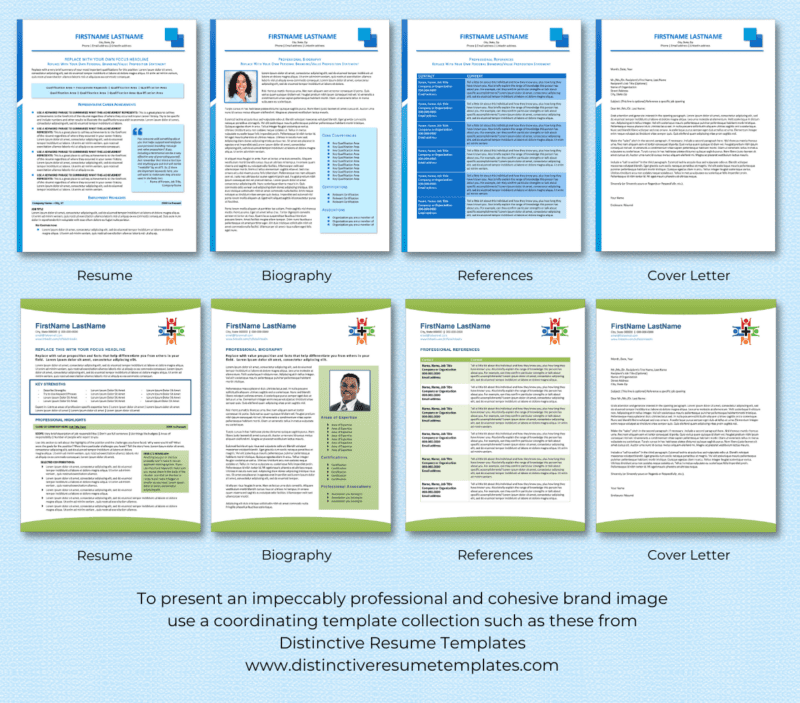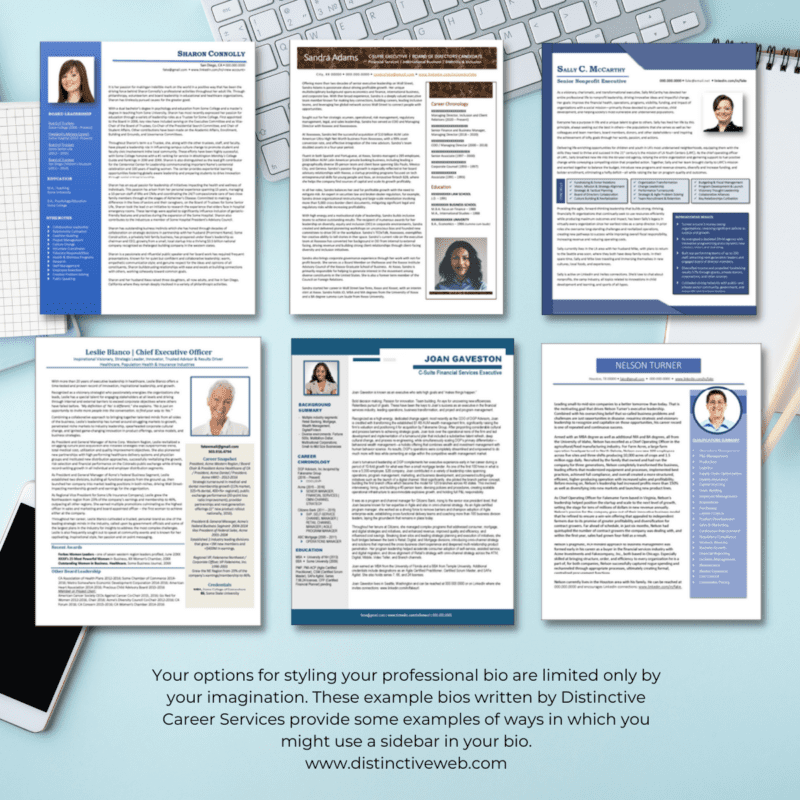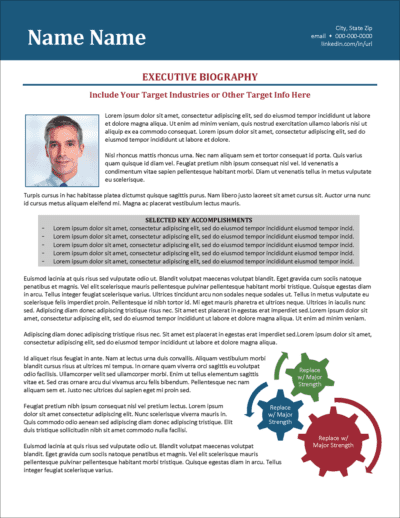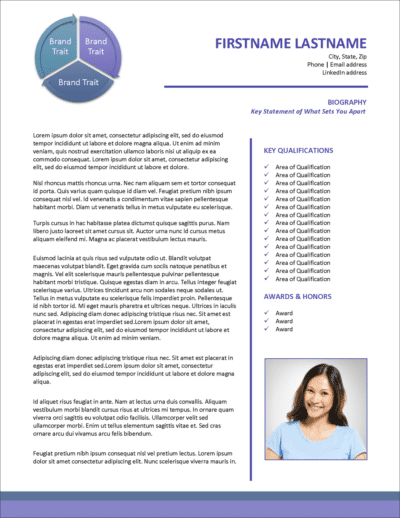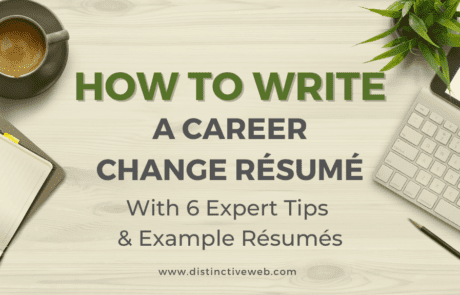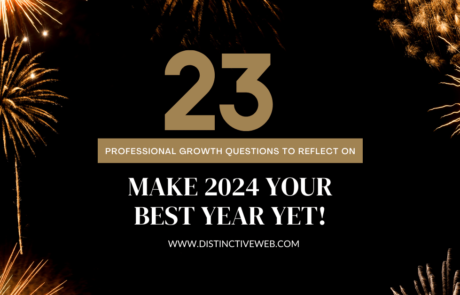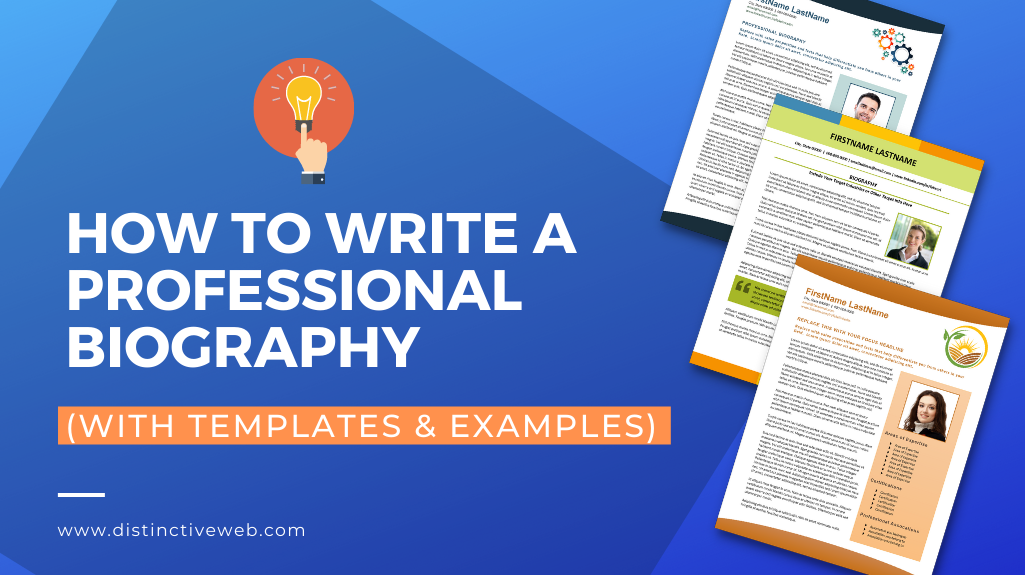
So, you’ve been asked for your biography. As a professional, you almost surely recognize the need for a resume, and maybe you even have an up-to-date resume ready to be used with very little notice (if you don’t, you should!). But a biography? If you are like most of the professionals we work with at Distinctive Career Services, you didn’t even know you needed one until you were asked for it.
While C-suite executives and board candidates might be called on to provide a biography more frequently, even new college graduates can benefit from a professional biography. Just some of the situations in which a bio might be needed include the following:
Really, when you consider that biographies can be used for networking purposes, as an interview leave-behind, when you publish anything, when you are speaking or presenting, on a website (for example, an “About Me” page or a business page introducing key employees of your employer), as part of a conference program (as a presenter or attendee), as a download from social media accounts, and much more, you begin to realize that almost any professional will benefit from having a well-written biography as part of their career marketing portfolio.
What Is a Professional Bio & How Is It Different From Your Resume?
Simply put, a biography is a narrative document, almost never longer than one page, that is written in the third-person perspective.
A well-written biography provides an attention-grabbing and meaningful introduction to you by telling your story in a way that illustrates your professional value.
But, isn’t that what a resume does? And your LinkedIn profile?
The answer is yes. Your biography, your resume, and your LinkedIn profile are all marketing pieces intended to sell you as THE person capable of meeting the needs of your target audience. They all should articulate your personal brand and tell your career story.
Still, there are significant differences and each serves its own purpose (although there is overlap and all complement the other). For a detailed comparison, see the infographic on this page.
The Best Biography is a Focused Biography
Your biography is not meant to be everything to all people. Consider it more of a living document that can be customized and edited for various situations.
Many people mistakenly refer to executive biographies, board biographies, and professional biographies as if they are three different documents. They are not.
Sure, they are different in wording, but that difference has to do with the way they are focused and the audience to whom they are written to appeal. Regardless of whether you are writing your resume, your LinkedIn profile, or any type of professional biography, it is essential that you know your audience and what will interest them and engage them.
For example, the biography of a CEO seeking a public company board position is going to be different than the bio of a sales executive who is speaking at an industry association’s annual conference. The bio that an independent consultant provides to prospective clients will be different as well. Consider even that the biography of a consultant who is targeting engagements with startup companies will be very different than the biography of a consultant targeting engagements with Fortune 500 companies. The reason? Simple. The CEO of a startup is facing very different challenges than the CEO of a Fortune 500. Your biography should be written to speak to the needs of the audience you are targeting.
The bottom line: know your focus, know what your audience is looking for, and then craft the story conveyed in your bio to speak to those needs. The value that your audience perceives in you is directly tied to your story and your story is one of the most important factors in getting people to know you, like you, and trust you.
7 Expert Tips For How to Write Your Professional Bio
What Should Your Professional Bio Look Like?
As explained earlier in this article, biographies can take many forms and be used in many different ways. The recommendations here apply to more traditional, one-page narrative biographies.
If you don’t have the design skills to create a professional document, there are professional bio templates available at a very low cost. If you do decide to use a template for your bio, make sure you redesign your resume to match the design. Distinctive Resume Templates are arranged in collections that make this easy. Choose the design that catches your eye and purchase the entire collection with templates designed to make it easy for you to give your bio, resume, and other career marketing documents a modern facelift. The biography templates shown below are just a sampling of what is available.
Of course, if you hire Distinctive Career Services to help you with your biography and other career marketing documents, in addition to writing the content, we will also create attractive, on-brand designs for all your documents.
Ready To Get Started?
Your biography tells your personal story and promotes your personal brand in a way that no other document can do. It provides the chance for you to introduce yourself and make a polished first impression, using stories to create chemistry and connection with the reader.
An up-to-date biography is an important tool to add to your career marketing portfolio, no matter whether you are an executive or a new graduate fresh out of college. To get professional help writing your biography or any other career document, reach out today. Distinctive Career Services is here to help!
Frequently Asked Questions
What is a professional bio?
A professional bio is a narrative document, usually no longer than one page, written in the third-person perspective. It provides a meaningful introduction to you by telling your story in a way that illustrates your professional value.
How is a professional bio different from a resume?
While both a professional bio and a resume are marketing pieces intended to sell you as the ideal person for your target audience, they serve different purposes. A resume typically lists your work experience and skills, while a professional bio tells your story in a more narrative and personally revealing way.
Who needs a professional bio?
Almost any professional can benefit from having a well-written biography. This includes public speakers, authors, consultants, executives, and business leaders. A professional bio can be used for networking purposes, as an interview leave-behind, when you publish anything, when you are speaking or presenting, on a website, as part of a conference program, and much more.
How should I start writing my professional bio?
Begin by thinking about the purpose of your biography and who will be reading it. Consider the challenges, problems, goals, and needs of your target audience. Look at your entire career from a holistic perspective and identify the common threads or “themes” that highlight your unique value proposition.
What should I avoid when writing my professional bio?
Avoid using jargon and unsubstantiated claims. Instead, tell a story that shows your unique qualities and skills. Also, avoid trying to “wow” your reader with fancy language and obscure words. Use clear, formal yet conversational language.
Can I include personal information in my professional bio?
Yes, sharing a bit of personal information can help infuse your biography with personality. This can include information about your interests, hobbies, travels, charities you support, and sometimes even your family. However, it’s best to steer away from information that reveals religion, politics, or other associations that might cause bias.
How should my professional bio look like?
Your professional bio should include a professional headshot photograph of yourself and should have a professional-looking letterhead and document design that matches the style and branding of your resume and other career marketing documents. It’s also common to include a sidebar or other callout box to highlight key points.
Do I need professional help to write my professional bio?
While it’s possible to write your professional bio on your own, getting professional help can ensure that your bio is well-written, engaging, and effectively communicates your professional value. Professional services can also help with creating attractive, on-brand designs for your bio and other career marketing documents.


